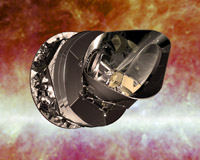 |
Tempe AZ (SPX) Apr 26, 2011 An international forum is saluting the 50th anniversary of the first human to orbit the Earth - but also calling attention to concerns regarding the secure and sustainable uses of outer space. Secure World Foundation's founder and President, Cynda Collins Arsenault, is participating in a forum round table discussion on the importance of space exploration for education, science and culture. The special roundtable is being held during the International Forum on the Peaceful Use of Outer Space, a celebration of cosmonaut Yuri Gagarin's milestone-making spaceflight over five decades ago. Joining Arsenault on the panel: Narendra Bhandari of the National Science Academy of India; Dominique Proust, an astrophysicist of the Observatoire de Paris Meudon; NASA's Kirkham Gib, Director of the Exploration Systems and Aeronautics Research Division; and Thomas Culhane, a scientist and educationalist, Iraq/USA. Moderating the panelists is Hans d'Orville, Assistant Director-General for Strategic Planning at UNESCO and Serguey Kapitza, a professor from the Russian Federation. This exceptional event on April 21 in Paris, France is sponsored by United Nations Educational, Scientific and Cultural Organization (UNESCO), a historic gathering of cosmonauts, astronauts and space explorers from various countries and by scientists, astrophysicists, musicians, historians and decision-makers. "As the first human to see the Earth from space, Yuri Gagarin recognized both the beauty and fragility of our home," Secure World Foundation's (SWF) Arsenault said. "Seeing the world as a global community has helped spark the environmental movement to protect this fragile planet." However, 50 years after Gagarin's historic voyage - while space brings great promise - "now is the time to examine what must be done to keep space sustainable so that humanity can continue to use outer space for peaceful purposes and socioeconomic benefit," Arsenault emphasized.
Protecting the global commons of space Steps must be taken to create the secure and sustainable use of space for the benefit of humanity, Arsenault said. Sustainability of space has two main components, the physical environmental - management of space debris and electromagnetic spectrum, space traffic management - and a political component, promoting stability and preventing conflict. "Each component requires new norms, rules and mechanisms for protecting the global commons of space," Arsenault noted. In this regard, one area most ripe for work - and a major thrust of SWF's agenda - is Space Situational Awareness (SSA) - knowing what's where in the space environment. "SSA enables space actors to operate safely and efficiently in space and creates awareness of environmental threats and allows for their potential mitigation," Arsenault said. The peaceful uses of outer space provides a world of possibilities, indeed, a universe of possibilities, Arsenault concluded, "but it will take some careful consideration and thoughtful planning to ensure that our children and our children's children will be able to reap the benefits that space promises."
Share This Article With Planet Earth
Related Links Read Arsenault's prepared remarks - "Yuri's Challenge" The latest information about the Commercial Satellite Industry
 Far Sighted Space Technology Finds Practical Uses On Earth
Far Sighted Space Technology Finds Practical Uses On EarthLondon, UK (SPX) Apr 26, 2011 Technology developed for space missions to study the most distant objects in the Universe is now finding a host of practical applications back on Earth. QMC Instruments Ltd., in partnership with the Astronomical instrumentation Group at Cardiff University, has built instruments for many major space missions, including Herschel and Planck. Now, expanding on that experience they are developi ... read more |
|
| The content herein, unless otherwise known to be public domain, are Copyright 1995-2010 - SpaceDaily. AFP and UPI Wire Stories are copyright Agence France-Presse and United Press International. ESA Portal Reports are copyright European Space Agency. All NASA sourced material is public domain. Additional copyrights may apply in whole or part to other bona fide parties. Advertising does not imply endorsement,agreement or approval of any opinions, statements or information provided by SpaceDaily on any Web page published or hosted by SpaceDaily. Privacy Statement |